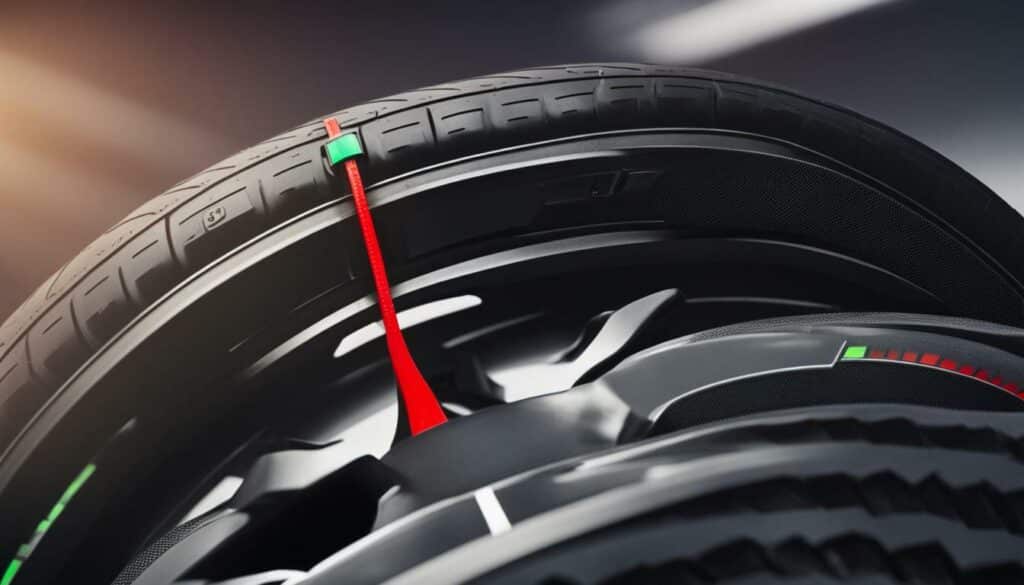Experiencing car shakes when braking can be a stress-inducing and unsettling situation. It is important for car owners to recognize when their vehicle starts exhibiting this behavior and take prompt action to address the issue. There can be several factors that contribute to car shaking when braking, including problems with the braking system, tires, and suspension.
In Short
- Car shakes when braking can be caused by various factors, including problems with the braking system, tires, and suspension.
- Worn tires, improper wheel alignment, and corrosion on the rotors are common causes of car shakes when stopping.
- Warped brake rotors, worn brake pads, and trapped air in the brake lines can also contribute to car shaking when braking.
- To resolve car shakes when braking, it is important to purchase good quality tires, have regular inspections, and address any issues promptly.
- Professionals can help diagnose and fix car shaking issues related to failing wheel bearings, frozen brake calipers, and bad CV axles and joints.
Understanding the Causes of Car Shakes When Braking
Experiencing car shakes when braking can be a nerve-wracking experience that raises safety concerns. To address this issue effectively, it is crucial to understand the various factors that can contribute to car vibration when braking. By identifying and addressing the root causes of the problem, you can restore a smooth and safe driving experience.
Worn Tires
One of the common culprits behind car shakes when stopping is worn tires. Over time, tires can develop cracks, low tread depth, bulges, and blisters. These signs indicate that the tires have reached their lifespan and require immediate replacement. Worn tires not only compromise your safety but can also lead to unstable braking performance, resulting in car vibration when braking. Regularly inspecting and replacing tires that show signs of wear is essential to minimize this issue.
Improper Wheel Alignment
A poorly aligned wheel can cause the steering wheel to shake when braking. When the wheels are misaligned, it can lead to uneven tire wear and affect the overall stability of the vehicle. Over time, misalignment can also cause damage to the suspension components, exacerbating the car shaking when braking. Therefore, it is vital to have your wheel alignment checked regularly and corrected if necessary.
Corrosion and Dirt Build-up on Rotors
Corrosion and dirt build-up on the brake rotors can also contribute to car shakes when braking. As the brake pads attempt to grip the rotor, the presence of these contaminants can create uneven friction, resulting in vibrations. Regularly cleaning the rotors to remove any corrosion or dirt can significantly improve braking performance and reduce car vibration when braking.
Warped Brake Rotors
Warped brake rotors are a common issue that can lead to car shaking when braking, especially at higher speeds. Warping can occur due to excessive heat generated during braking or improper installation. When the rotors are warped, the brake pads cannot make consistent contact, resulting in uneven braking forces and vibrations. To address this issue, warped brake rotors can either be replaced or resurfaced, providing a temporary solution to minimize car shakes when braking.
Other Potential Causes
In addition to the above factors, there are several other potential causes that can contribute to car shakes when braking. These include worn brake pads, air trapped in the brake lines, failing wheel bearings, frozen brake calipers, or a bad CV axle and joint. Identifying and addressing these issues promptly is crucial to maintain optimal braking performance and ensure a smooth driving experience.
By understanding these common causes of car shakes when braking, you can take the necessary steps to rectify the underlying issues. Whether it’s replacing worn tires, aligning the wheels, cleaning the rotors, or addressing other potential causes, addressing these problems will help you restore the stability and safety of your vehicle.
| Potential Causes of Car Shakes When Braking | Solutions |
|---|---|
| Worn Tires | Replace worn tires with new ones. |
| Improper Wheel Alignment | Have wheel alignment checked and corrected if necessary. |
| Corrosion and Dirt Build-up on Rotors | Clean rotors to remove corrosion and dirt. |
| Warped Brake Rotors | Replace or resurface warped brake rotors. |
| Other Potential Causes (e.g., worn brake pads, air trapped in brake lines, failing wheel bearings, frozen brake calipers, bad CV axle and joint) | Diagnose and repair the specific issue. Seek professional assistance if needed. |
Tips and Fixes for Car Shakes When Braking
Dealing with car shakes when braking can be daunting, but there are effective solutions available. Seek assistance from knowledgeable professionals to address the issue promptly. Here are some tips and fixes to consider:
1. Invest in Good Quality Tires: Ensure your vehicle is equipped with high-quality tires and have them inspected regularly. Worn or damaged tires can contribute to car shaking when stopping.
2. Check Wheel Alignment: Improper wheel alignment can cause the steering wheel to shake when braking, leading to premature tire wear and suspension damage. Regularly check and correct the wheel alignment if necessary.
3. Clean the Rotors: Corrosion or dirt buildup on the rotors can generate vibrations as the brake pads engage. Clean the rotors to improve overall braking performance.
4. Address Warped Brake Rotors: Warped brake rotors, a common problem, can result in car shaking when braking at higher speeds. Consider replacing or resurfacing the rotors for a temporary fix.
5. Replace Worn Brake Pads: Worn brake pads should be replaced, ideally in conjunction with the rotors. This helps to ensure optimal brake performance and reduces the likelihood of car shakes when braking.
6. Bleed the Brake System: If you suspect trapped air in the brake lines, bleeding the brake system can resolve related issues and improve braking stability.
7. Professional Repair: Diagnose and repair issues such as failing wheel bearings, frozen brake calipers, or bad CV axles and joints with the help of professionals. They have the expertise to resolve complex problems effectively.
8. Prioritize Regular Maintenance and Inspections:
To prevent and address car shakes when braking, prioritize regular maintenance and inspections. Schedule routine check-ups to identify potential problems and address them proactively.
By following these tips and fixes, you can restore your car’s braking performance, eliminate shakes when braking, and ensure a safer driving experience.
FAQ
What causes a car to shake when braking?
Car shakes when braking can be caused by several factors, including worn tires, improper wheel alignment, corrosion and dirt on the rotors, warped brake rotors, worn brake pads, trapped air in the brake lines, failing wheel bearings, frozen brake calipers, or a bad CV axle and joint.
How can I resolve car shakes when braking?
To address car shakes when braking, it is important to purchase good quality tires and have them inspected regularly. Wheel alignment should be checked and corrected if necessary. Cleaning the rotors of any corrosion or dirt can improve braking performance. Warped brake rotors can be replaced or resurfaced. Worn brake pads should be replaced, ideally along with the rotors. Bleeding the brake system can resolve issues related to trapped air. Failing wheel bearings, frozen brake calipers, and bad CV axles and joints should be diagnosed and repaired by professionals. Regular maintenance and inspections are key to preventing and addressing car shakes when braking.
Why is tire condition important in preventing car shakes when braking?
Worn tires can contribute to car shakes when stopping. Cracks, low tread depth, bulges, and blisters are signs that the tires need to be replaced. By purchasing good quality tires and regularly inspecting them, you can prevent the occurrence of car shakes when braking.
Can improper wheel alignment cause car shakes when braking?
Yes, improper wheel alignment can cause the steering wheel to shake when braking. It can also lead to premature tire wear and damage to suspension components. Regular wheel alignment checks and corrections, if necessary, can help prevent car shakes when braking.
What should I do if my car has warped brake rotors?
If your car has warped brake rotors, they can be replaced or resurfaced for a temporary fix. It is recommended to consult with a professional mechanic to determine the best course of action based on the specific condition of the brake rotors.




